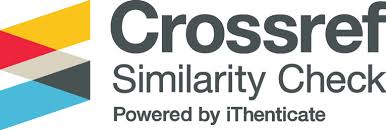PENGARUH MOTIVASI BELAJAR, EFEKTIVITAS PEMBELAJARAN DARING, DAN KECERDASAN EMOSIONAL TERHADAP TINGKAT PEMAHAMAN AKUNTANSI PADA MASA PANDEMI COVID – 19
Abstract
College level accounting education has the aim of educating students so that these
students have good knowledge of accounting so that they can produce competent students
as professional accountants, to be able to have adequate academic knowledge and added
value, a good understanding of accounting is required. This study aims to determine the
effect of learning motivation, effectiveness of online learning, and emotional intelligence
on the level of accounting understanding during the covid-19 pandemic. The population
in this study includes active students of the Accounting Study Program at the Hindu
Indonesia University class 2018-2019 as many as 448 students. The number of samples in
this study were 82 people who were determined by calculating the Slovin formula and
tested using multiple linear regression analysis techniques. The results of this study
indicate that (1) learning motivation has a positive effect on the level of accounting
understanding during the covid-19 pandemic. (2) The effectiveness of online learning has
a positive effect on the level of accounting understanding during the covid-19 pandemic.
(3) Emotional intelligence has a positive effect on the level of accounting understanding
during the covid-19 pandemic. In the future, the results of this study can be used as
material for consideration in designing regulations and learning methods that can be
used to improve the ability and comprehension of students regarding accounting courses.







